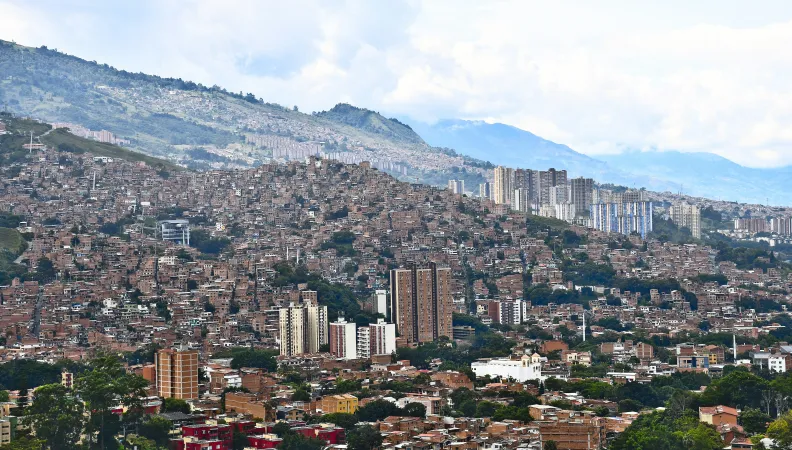Share the page
Reducing spatial inequalities through efficient public service delivery in Colombia

-
Project start date
-
2024Status
Ongoing
-
Project end date
-
2025
-
Project duration
-
1 year
-
AFD financing amount
-
71000
-
Country and region
-
Location
-
Colombia
-
Partners
-
Ministry of Finance of Colombia (Hacienda y Crédito Público)
-
Research program
Reducing spatial inequalities is a priority for the Colombian government, which uses a public policy tool – the General Participation System (GPS) – to achieve this objective. This research project aims to analyse the impact of the GPS strategy on reducing spatial inequalities in Colombia, in partnership with the Institute for Public Action.
Contexte
In Colombia, the oil and coal mining industry is an important source of fiscal revenues, including royalties. The Sistema General de Regalías (or General Participation System, GPS) has therefore been set up to organise the transfer of these royalties – that come from the exploitation of non-renewable natural resources – from the Ministry of Finance and Public Credit to territorial entities. These resources finance the provision of services in the sectors of education, health, drinking water and basic sanitation, general purpose and special allocations, in the different regions of Colombia. This mechanism aims at ensuring a fair distribution of income, which is essential since spatial inequalities in terms of access to services are still significant in Colombia – as shown by the multidimensional diagnosis of inequalities carried out with the support of AFD. For example, while in urban areas, the secondary education coverage rate is close to 100%, it is 50% in rural areas.
The Strategy for monitoring, follow-up and control of the resources of the GPS is a public policy tool led by the Ministry of Finance and Public Credit to carry out control over the management of the resources transferred. This strategy, in implementation for almost 15 years, identifies alerts and cases of non-compliance with the goal of assuring continuity, coverage and quality in the provision of public services. This seeks to prevent and mitigate risks in the provision of social services throughout Colombia, which is essential for the construction of equity across the country, as well as to prevent territorial gaps from widening with regards to the institutional capacities of local governments and to the provision of social services for all populations, regardless of their location.
This project is part of the Extension of the EU-AFD Research Facility on Inequalities. Coordinated by AFD and financed by the European Commission, the Extension of the Facility will contribute to the development of public policies aimed at reducing inequalities in four countries: South Africa, Mexico, Colombia and Indonesia over the period 2021-2025.
This work is also part of AFD's dialogue with the Colombian authorities on tax reform and the reduction of spatial inequalities.
Objectif
This research project seeks to generate recommendations with the purpose of analysing and strengthening the role of the GPS tool – “the Strategy” – as a mechanism for closing territorial gaps in institutional capacities to provide social services.
Two research objectives have been identified, one in the field of diagnosis, and another in the field of recommendations:
- Identify the achievements, limitations, and challenges of the implementation of the Strategy in closing territorial gaps in the institutional capacities of territorial entities and in the provision of essential social services.
- Provide recommendations to strengthen the Strategy in its role of institutional assistance for the closing of territorial gaps.
Méthode
The project will focus on sectors that receive more resources from the GPS, present more risks in their provision and are the most relevant as essential social services:
- Education;
- Health;
- Drinking water and basic sanitation;
- Indigenous reservations.
The research methodology will be mixed methods and will include:
- A document review at the level of the Ministry of Finance and Public Credit and the territorial entities selected as a case study;
- A secondary data analysis;
- In-depth interviews with a subsample of the selected territorial entities.
Résultats
You will find below the different research papers related to this project:
In progress
Contact:
- Anda David, AFD Research Officer
